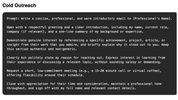What is (or was) your Sales Methodology? Not your process…your methodology?
We all had one, it may have morphed over the years and no doubt you moulded it into your own version and style, but we all started somewhere and had some grounding.
Our Sales methodology outline how we approach each phase of our Sales process. The process plots out the sequence of stages, our methodology brings the discipline & techniques, the principles & best practice. You may have subscribed to a particular method, you may even have invented your own
In practice, a Sales methodology is your Sales team’s DNA. It equips them with a practical, scalable and repeatable framework for delivering results.
When I first moved into B2B sales, I was trained in the Miller Heiman process and methodology Professional Selling Skills and Strategic Selling. Some of you may remember the ‘Blue sheets…’? I used it for quite a while and an put it to good use but I found over time it began to feel old, so I looked for something new.
In 1985 Sales consultants Robert Miller and Stephen Heiman released the book “Strategic Selling.” The book delved deeper on the needs satisfaction approach of PSS (Professional Selling Skills) developed by Xerox in the 1970s, equipping sales teams with a methodology for managing complex sales processes.
Since then there have been hundreds of Sales methodologies developed, some target specific areas sales some examine the whole Sales piece, you might recognise some of these...
- Relationship Selling : such as business-to-business selling.
- SPIN: an approach for Relationship selling
- Customer Centred Selling: similar to SPIN
- System Selling: Selling systems to systems.
- High Probability Selling: Targeting the best customers.
- Buying Facilitation: Facilitate the buyer's system.
- Gap selling: Challenging assumptions and exposing the problem
- The Challenger Sale: Making clients really think.
The Challenger Sale really hit home with me. I used to have all my sales teams read it a discuss it. The Five Sales Rep profiles model always interested me….

Is it hard and fast that you are one or the other? Of course not but, it does help when look at Sales team dynamics. I often found that even the act of talking about how we were built as a team was helpful and brought out some good discussion points.
None of these methods are the Holy Grail, none of them work exclusively or in isolation.
My point is, our trade has been officially evolving for over 70 years. It doesn’t really matter what process or methodology I like or you like, as long as we are learning, trying new things and looking to get better at what we do. We must accept that methods grow old, lose effectiveness and others take over. New views, different methodologies, new ways of thinking new standards…the only thing standing still in this picture is us.
In Sales, our trade is not regulated, we don’t have to pass an exam to become a Sales professional, we don’t have to prove our competence. Our colleagues in HR or HSEQ have to regularly train, top up CPD and prove competence, we don’t. Of course, we should, but we do not have to. We self-regulate, its up to us to keep abreast of the latest, the greatest and the new.
The 'latest and the new' for us is Social Selling, sometimes called Modern Selling.
It’s the latest evolution of our trade. If you are in Sales today and haven’t gotten up to speed with Social Selling, you are behind. It’s that simple, it’s not a question or a debate. A few weeks ago I saw a Sales leader on LinkedIn respond to a question about Social Selling, his response “I’m still not convinced…" - mind boggling. I can imagine the same voices in 1992 saying "I don't think this email thing is going to last"....
Social Selling isn’t Selling on Social. What has happened over the last 10-20 years, with the arrival of the internet, is that the buyer is now able to go online and do research into your products, your services and your company culture.
That means they don’t really need to talk to a Sales person anymore. If they do, they only really need them to close the deal. They have done all the research on you, your products and services and your competitors...and didn’t need you. What you need to do if you want to engage with these prospects is actually be online and engage with them....online.
Every week I meet with more and more Sales professionals who tell me that the old ways of selling aren’t working any more. These are those who are being honest, not clinging onto a romantic vision that cold calling and email campaigns can actually achieve a Sales forecast in 2020.
Surely the fact that old fashioned methods don't work is not a shock? The world moves on and gets smarter, things change – just look at mobile phones. The way we've worked for the last 20 years was all built on 'interruption marketing' – ads, emails, cold calls – We are all smarter in this digital age and we know what we like and don’t like – We don’t like being interrupted.....so why would our clients?
The scales of power have well and truly shifted in the favour of the buyer!
In my daily work I speak to a lot of leaders, mainly from SME’s. One common theme that comes up is the preconception that Social Selling is really for large businesses – Social Selling is absolutely for small business as it allows you to scale. Social Media closes the distance between buyers and sellers regardless of your size or industry.
Social Selling isn't a quick-fix, flash-bang, short-term solution. This evolution of our trade requires a mindset shift, a definite alteration of our habits and behaviour. It’s all change for our internal language around Sales and Marketing, all change for our metrics and the very fabric of the way we work.
Social Selling needs patience and commitment. Its not the single-minded pursuit of that Purchase Order. Our buyers are smart so we must be smarter, they have powered up so we must power up.
This is all about building influence. Providing relevant content and insight to your prospects and customers.
Research by Demand Gen Report revealed that 93% buyers want their content to “curb the sales messages”. Buyers don’t want to feel sold to when researching – Remember the old ways of interrupt and broadcast? We must listen to what our buyers are telling us and adjust.
Another recurring theme is that people tell me they tried Social Selling and it didn’t work or that they are currently doing it. When investigated, in every case the organisation has confused the simple act of posting content as Social Selling. Posting something on Social Media is Marketing in 2020 – what you do with the interaction is Social Selling – engage, interact, discuss, relate, converse….
I read a comment recently on LinkedIn where someone in Sales said, “I don’t post for likes and comments”. You have to ask, why? Likes and comments are our leads in 2020, they are a signal from our audience that they like/question what we are saying/doing and support it or challenge it. This is our opportunity to start a conversation...
All Sales professionals must be trained in Social Selling in 2020, its a given. Organisation must be insisting upon demonstrable Social Maturity when hiring in Sales people these days.
At DLA Ignite, we want to help you with this transition and have developed a 'Discovery session' which allows us to measure the Social Media efficacy of your teams and benchmark against a leading standard.
The benchmark will show current grading and, what should be expected with improvement. Clients are finding this helpful as a strategic GAP analysis and planning tool.
For a limited time we are offering this Discovery Session free of charge to teams of up to 10.
Send me a note to set up your Discovery Session, you can get me here.
Eric Doyle
Crux / DLA Ignite
Email marketing isn’t working – ...what’s a B2B marketer to do?
https://www.thedrum.com/opinion/2020/09/30/email-marketing-isn-t-working-what-s-b2b-marketer-do
 unknownx500
unknownx500











